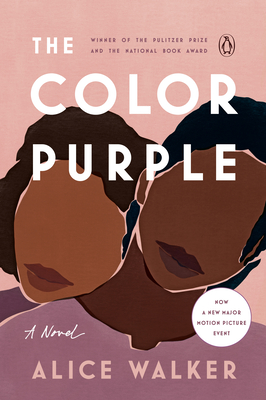Book Review: The Color Purple
12-time BLK Bestseller, Adult Fiction (Paperback)
Reviewed by:
Angeli R. RasburyAlice Walker once told an interviewer, "The black woman is one of America’s greatest heroes… . She has been oppressed beyond recognition."
The Color Purple is the story of how one of those American heroes came to recognize herself recovering her identity and rescuing her life in spite of the disfiguring effects of a particularly dreadful and personal sort of oppression. The novel focuses on Celie, a woman lashed by waves of deep trouble’abandonment, incest, physical and emotional abuse’and tracks her triumphant journey to self-discovery, womanhood, and independence. Celie’s story is a pointed indictment of the men in her life’men who betrayed and abused her, worked her like a mule and suppressed her independence’but it is also a moving portralt of the psychic bonds that exist between women and the indestructible nature of the human spirit.
The story of Celie is told through letters: Celie’s letters to God and her sister Nettle, who is in Africa, and Nettle’s letters to Celie. Celie’s letters are a poignant attempt to understand her own out-of-control life. Her difficulties begin when, at the age of fourteen, she is raped by her stepfather, who then apparently sells away the two children born of that rape. Her sister Nettle runs away to escape the abuse, but Celie is married off to Albert, an older man that she refers to simply as "Mr." for most of the novel. He subjects her to tough work on his farm and beats her at his whim. But Celie finds the path to redemption in two key female role models: Sophia, an independent woman who refuses to be taken advantage of by her husband or any man, and Shug, a sassy, independent singer whom Albert loves. It is Shug who first offers Celie love, friendship, and a radically new way of looking at life.
" Well, us talk and talk bout God, but I’m still adrift. Trying to chase that old white man out of my head. I been so busy thinking about him I never truly notice nothing God make. Not a blade of corn (how it do that?) not the color purple (where it come from?) Not the little wildflowers. Nothing."
"Now that my eyes opening, I feels like a fool. Next to any little scrub of a bush in my yard, Mr. ______’s evil sort of shrink. But not altogether. Still, it is like Shug say, You have to git man off your eyeball, before you can see anything a’tall."
"Man corrupt everything, say Shug. He on your box of grits, in your head, and all over the radio. He try to make you think he everywhere. Soon as you think he everywhere, you think he God. But he Ain't. Whenever you trying to pray, and man plop himself on the other end of it, tell him to git lost, say Shug. Conjure up flowers, wind, water, a big rock."
"But this hard work, let me tell you. He been there so long, he don't want to budge. He threaten lightning, floods, and earthquakes. Us fight. I hardly pray at all. Every time I conjure up a rock, I throw it."
 Finally, Celie leaves Albert to follow her own desires and discover her own
talents and abilities. The novel ends in celebration: Celie is reunited with her
sister and even the demonic Albert gets a shot at redemption. The Color Purple
is one of the most successful and controversial books ever written by a black
woman. It was an international bestseller, won both the American Book Award and
the Pulitzer Prize, and in 1985 was made into a much-discussed movie directed by
Steven Spielberg. The movie and novel provoked controversy about Walker’s
portrayal of black men, which many found offensive and one-dimensional. Of
course, Walker’s book has outlived both the movie and its critics; its
no-holds-barred portrayal of black male-female relations broadened the trail
blazed by her hero, Zora Neale
Hurston. The novel is a wonderful fulfillment of
its author’s mission: to tell the untold stories of those black American heroes
who withstood the gaudiest abuse a racist, sexist society could offer and
emerged triumphant.
Finally, Celie leaves Albert to follow her own desires and discover her own
talents and abilities. The novel ends in celebration: Celie is reunited with her
sister and even the demonic Albert gets a shot at redemption. The Color Purple
is one of the most successful and controversial books ever written by a black
woman. It was an international bestseller, won both the American Book Award and
the Pulitzer Prize, and in 1985 was made into a much-discussed movie directed by
Steven Spielberg. The movie and novel provoked controversy about Walker’s
portrayal of black men, which many found offensive and one-dimensional. Of
course, Walker’s book has outlived both the movie and its critics; its
no-holds-barred portrayal of black male-female relations broadened the trail
blazed by her hero, Zora Neale
Hurston. The novel is a wonderful fulfillment of
its author’s mission: to tell the untold stories of those black American heroes
who withstood the gaudiest abuse a racist, sexist society could offer and
emerged triumphant.
Related Links
The Color Purple On Broadway - Article: Broadway’s ’The Color Purple’ Empowers Many


